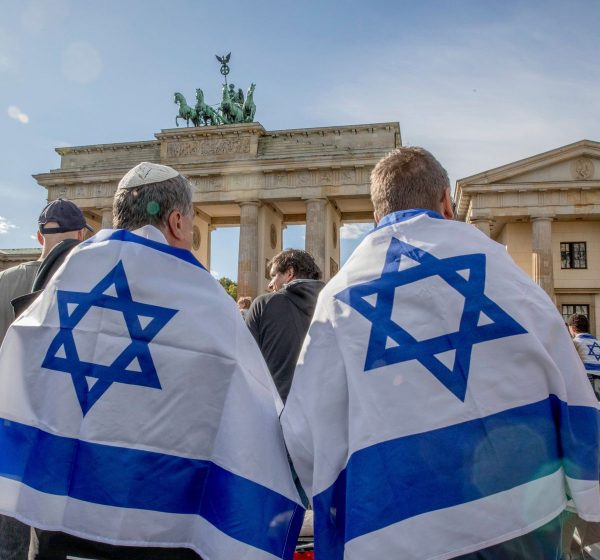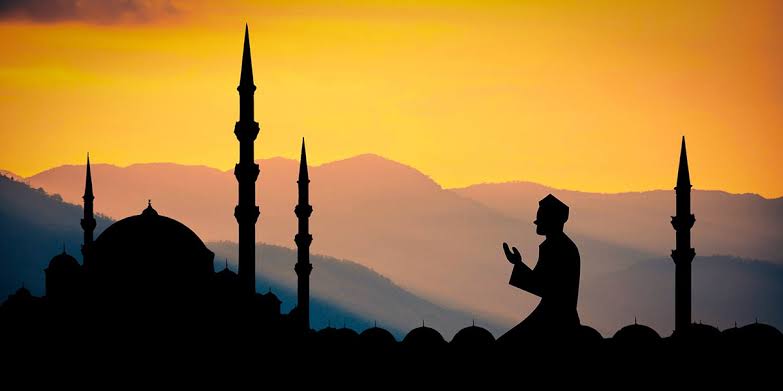EXPLAINER: Is Israel predominantly a Christian country as widely believed?

October 8, 2023, Berlin, Germany: In a poignant display of solidarity and remembrance, hundreds of Israelis gathered on October 8, 2023, at Berlin’s iconic Brandenburg Gate to commemorate the victims of the recent attacks launched by Hamas from Gaza. Waving Israeli flags and holding up banners of hope, unity, and resilience, the crowd painted a vivid picture of a diaspora deeply connected to their homeland. The sea of blue and white, interspersed with heartfelt messages, was a testament to the enduring spirit of the Israeli people. (Credit Image: © Michael Kuenne/PRESSCOV via ZUMA Press Wire) / action press
The notion that Israel is predominantly Christian and Palestine is entirely a Muslim nation is invalid.
The latest face-off between the two countries has again divided observers, mostly along religious lines. A major conversation around the war is the religious composition of Israel.
For many, Israel is predominantly a Christian nation. Some Christians often cite the Bible to drive home their point.
It is, therefore, not surprising to see phrases such as “pray for Israel” among several Christian communities.
Enoch Adeboye, the general overseer of the Redeemed Christian Church of God, recently left tongues wagging over his post, expressing his solidarity with Israel.
In the now-deleted video shared via his X (formerly known as Twitter) page, the renowned cleric said:
“My beloved Brothers in Israel, I want you to know that we are praying for you, that all members of the Redeem Christian Church of God are standing by you at this critical moment.
“The Almighty God, the Holy One of Israel, will give you absolute victory and permanent peace in Jesus’ Name. Amen. It is going to be well with you.
“This war will be the war that will be the end of all war in Israel. From now on, it will be peace and progress, and no one will ever again disrupt the peace of Israel”.
Shortly after he shared the video, Reno Omokri, a chieftain of the Peoples Democratic Party (PDP), addressed the cleric’s stance.
In his post, Omokri wrote: “A greater percentage of Palestinians are Christians than the Israeli population. Half a million of them, to be precise”.
Israel and Palestine’s religious composition explained
Jews, Christians, and Muslims all place much religious significance on Israel, frequently called the Biblical homeland.
Although a small percentage of Christians in Israel, Christianity is not the country’s dominant religion.
Most people in the area identify as Jewish, and Judaism has long roots there.
Israel is, in fact, a predominantly Jewish state, and its political and cultural identity is intrinsically tied to Judaism.
Christianity, though, has a notable presence, particularly in cities like Jerusalem and Bethlehem.
The Church of the Holy Sepulchre, also called The Church of Resurrection and the Church of the Nativity, among other sites, attracts Christian pilgrims worldwide as they are considered the holiest site for Christians worldwide.
However, the Christian community constitutes a minority in Israel, making up 1.9% of the population.
Israel is a country characterized by religious diversity, with Muslims, Druze, Baha’is, and others living alongside Jews and Christians.
Similar to Israel, Palestine is not exclusively a Muslim nation. While Islam is the dominant religion, there is a rich tapestry of religious diversity within its borders.
Christianity has deep historical roots in Palestine, with many significant sites like the Church of the Nativity in Bethlehem.
Palestine’s Christian population, though a minority, has made substantial contributions to the region’s cultural and social fabric.
According to the Institute for Middle East Understanding (IMEU), a non-profit organisation, “about 93% of Palestinians are Muslim, of the Sunni (orthodox) sect, and about 6% are Christian”.
Therefore, religious diversity is not limited to Christianity alone; there are also Palestinian Jews, Samaritans, and other religious communities living in the area.
The assumption that Israel is a Christian nation or Palestine is exclusively Muslim oversimplifies the complex reality.
A diverse tapestry of faiths marks Israel and Palestine with a deep historical and cultural significance for multiple religions.
What data say?
According to the country’s Central Bureau of Statistics (CBS) classification system (2021 data), approximately 73.8 percent of the population is Jewish, 18 percent Muslim, 1.9 percent Christian, and 1.6 percent Druze.
The remaining 5 percent consists of those the CBS classifies as “other.”
“This category includes those who identify as Jewish but do not satisfy the Orthodox Jewish definition of “Jewish” that the government uses for civil procedures and applies to many immigrants from the former Soviet Union. The country is also home to relatively small communities of Samaritans, Karaite Jews, Messianic Jews, Seventh-day Adventists, Jehovah’s Witnesses, and Baha’is,” the report said.
“The majority of non-Jewish citizens are of Arab/Palestinian origin. This includes approximately 75.8 percent of the country’s 185,000 Christians, according to the CBS as of December. NonArab/Palestinian Christians are mainly those who emigrated from the former Soviet Union in the 1990s as descendants of Jews or alongside Jewish family members and their descendants.”
A report by Pew Research Center, the Washington-based think tank, said about eight in ten (81%) Israeli adults are Jewish, while the remainder are mostly ethnically Arab and religiously Muslim (14%), Christian (2%) or Druze (2%).
By Chimezie Amos




